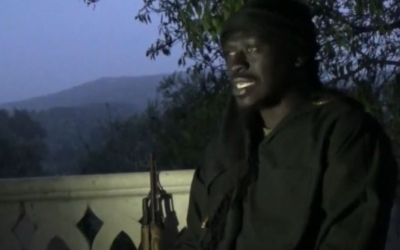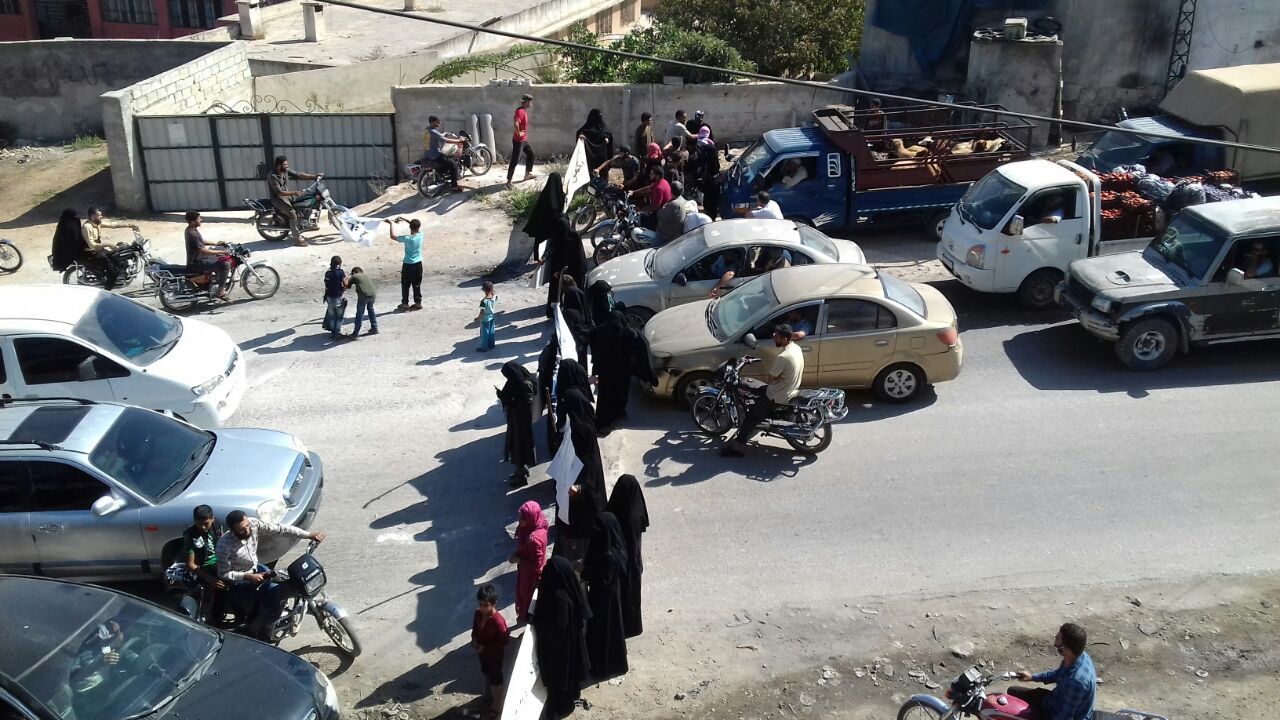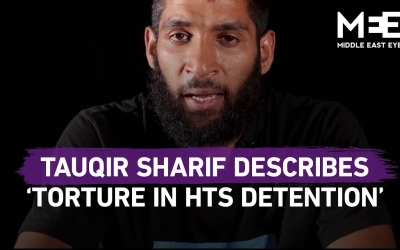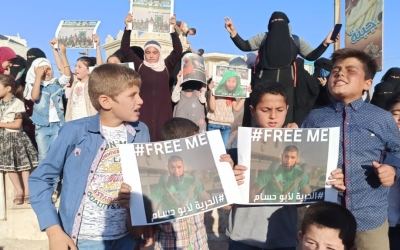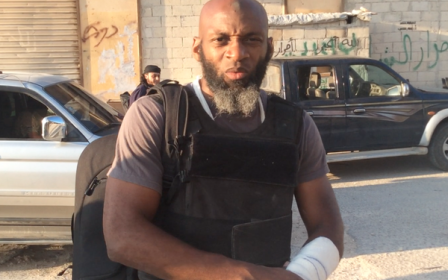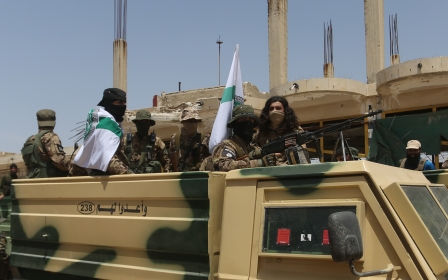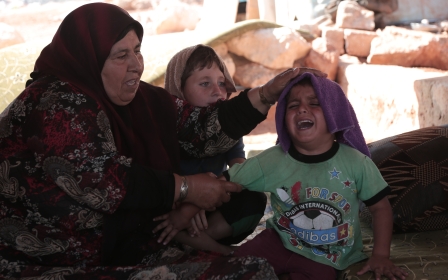Coups on allies: HTS rids Syria's Idlib of opponents
At the foot of a hill between the cities of Atma and Harem in northern Syria's Idlib province, simple tents have been stationed for years, dilapidated and going unnoticed by humanitarian organisations, while its residents are mysterious to most Syrians.
These are not tents for the miserable displaced near the Turkish border, but rather housing for French Islamist militants and other immigrants who have come from across Europe since the early years of the Syrian war.
The foreign militants, known for their ferocity in fighting, served as a high-impact force that could change the balance of battles in favour of Islamist factions fighting the Syrian government, its Russian ally, and hardline Shia militias for the past nine years.
The militants called themselves the Firqatul Ghuraba brigade, and were shrouded in mystery, which made them intimidating for anyone who tried to interfere in their affairs. When they left their tents, they walked masked, with their wives, in groups that carried weapons, without interest in or contact with anyone.
But this show of force has now ended.
In late August, Hayat Tahrir al-Sham (HTS) arrested Ghuraba's leader, French-Senegalese militant Omar Diaby, known as Omar Omsen, without his brigade and other foreign militants initially issuing any response.
This followed a series of years-long operations that brought the province under the rule of HTS, which originated as the Nusra Front - a group that broke away from al-Qaeda in mid-2016, changed its policy and arrested its opponents and former allies who had defected.
Complex reasons
At first, Taqi al-Din Omar, a spokesman for HTS, confirmed Omsen's arrest without explaining the reasons to Middle East Eye, but three days later he issued a statement saying that there were several lawsuits against Omsen.
"Omsen established a civil status administration, such as marriage and divorce, and runs a prison camp, ignoring the administration of the [province].
"These actions... are a door to corruption and evil, the authorities that control the criminal and civil file will never allow such actions," the statement added.
However, Ghuraba's statement was different. The brigade said that Omsen was arrested by an HTS court overseeing a dispute with some members of the Turkistan Islamic Party (TIP), an independent Uighur militant group based in Idlib.
Omsen has long been allied to the TIP and is thought to have tried to break away from the Uighur militants and ally himself with another group, a move that has caused disagreements between factions over weapons and areas of influence.
This chaos is normal for Omsen. After his arrival in Syria in 2013, he approached al-Qaeda and the Nusra Front, then allied his brigade with the Islamic State (IS), before separating from it when it moved with most of the French immigrants to Raqqa province, in eastern Syria.
At that time, Omsen found himself alone amid mounting hostility from IS and its former allies in Idlib, so he faked his own death in August 2015. He re-emerged in a television interview in May 2016 and claimed he faked his death in order to leave Syria to undergo surgery undetected.
Omsen was considered to be a prominent recruiter of fellow fighters in France. The number of French militants who entered Syria in early 2014 was around 700, according to David Thompson in his book French Jihadists.
Bad reputation
An HTS leader told MEE that Omsen was arrested for his association with Hurras al-Deen, the most prominent opponent of HTS, and the al-Qaeda branch allied with Islamist groups in a military operations room called "Be Steadfast".
'There are already concerns that some foreign fighters are associated with global intelligence services'
- HTS leader
The leader estimated Omsen's fighters to be between 75 and 125, describing them as a bad group, inactive, and with targets that are unclear.
"There are already concerns that some foreign fighters are associated with global intelligence services," the leader, who declined to give his name for security reasons, told MEE.
However, another source told MEE: "Years ago, an intense conflict broke out between Ghuraba and HTS because of a woman.
"When one of the Ghuraba fighters was killed in a battle, his foreign widow tried to return to Europe, but Omsen prevented her and forced her to marry him.
"Omsen told her: 'How are you going to go back to the land of the infidels [Europe]'," said the source, who also asked not to be named for security reasons.
"The woman fled to a court run by HTS, which in turn surrounded Ghuraba's tents after Omsen refused to appear in court."
MEE could not independently verify this account of events.
This was not the first time that an issue involving a woman had caused major strife between HTS and Ghuraba.
In 2017, a French man, Mehdi Jundallah, who had travelled to Syria with his daughter Yasmine, was killed in battle. His widow, a Belgian woman who had stayed behind, demanded that her daughter be returned to her, but Ghuraba asked for a ransom estimated at $20,000.
HTS encircled the tents of Ghuraba and arrested Omsen. After two weeks of tension, Hurras al-Deen mediated to resolve the dispute through a committee that decided to return the four-year-old girl to her mother through her country's embassy in Turkey.
The final destination
"Hurras al-Deen did not officially comment, but pro-Hurras accounts defended Omsen and said 'that HTS fabricated lies against him,'" Orwa Ajjoub, a researcher in Islamist militant groups based in Sweden, told MEE.
The leader of HTS said that Hurras al-Deen has become the last resort for all militants, including IS fighters who have been dispersed since the killing of their leader, Abu Bakr al-Baghdadi. The shadowy IS leader was killed in Idlib during a major US operation in 2019.
"They [Hurras al-Deen] call us infidels allied with the West, so they allow our money and cars to be stolen and try to kill us with explosive devices," he said.
'The two sides [IS and Hurras al-Deen] did not agree with each other, which led to splits that generated new groups'
- HTS leader
"The two sides [IS and Hurras al-Deen] did not agree with each other, which led to splits that generated new groups."
On 29 August, local media reported that the Turkish army had destroyed a car bomb that was about to target a Turkish military base south of Idlib, four days after a joint Russian-Turkish military patrol had been targeted by an explosive device in the south of the province.
Khattab al-Shishani Brigades, a new unknown Islamist group, claimed to have targeted the patrol, while the Abu Bakr al-Siddiq Brigades, another new unknown group, claimed to have targeted the Turkish base in a four-page statement.
The HTS leader said that there were secret undisclosed meetings held between Hurras al-Deen and his group in recent months.
"We are the sons of a cause and revolution supported by Turkey. We cannot sacrifice the lives of millions of people for irresponsible actions," he said.
"They [Hurras al-Deen] were wondering 'how you [HTS] accept international deals, and how you accept the entry of joint Russian-Turkish patrols into Idlib peacefully'."
Coup against allies
When HTS was operating as al-Nusra Front, it gained its fame by targeting the Syrian army and intelligence forces with specific security operations in big cities.
But it soon allied with al-Qaeda in early 2013 and adopted the anti-western approach, which raised fears among the international community and thus it missed opportunities to obtain support.
However, Syrian rebels often secretly shared about a third of what they received from western support with the al-Nusra Front, whose fighters were considered brothers and were assigned to fight in the front lines during fierce fighting.
This cooperation gradually died, with allegations of widespread theft among the rebels and a decrease in their fighting competence, in addition to attempts by al-Nusra to establish Islamic rule, especially during the battle for Aleppo in late 2016.
Therefore, many rebel leaders affiliated with the al-Nusra Front accuse the militant group of betraying them and taking over the revolution, after dismantling and ending many of their factions under the pretext of dealing with Turkey and the West.
Today, HTS is still classified as a terrorist group, even after it split from al-Qaeda and aligned itself with the Turkish-backed rebel group, the National Liberation Front (FLN), under the umbrella of al-Fateh al-Mubeen Operations Room, which also includes Jaish al-Izza.
It is trying to satisfy the West openly, which is causing chaos. It has removed foreigners from its ranks, arresting some of them - attracting protests from the wives of those detained - and has become entirely comprised of Idlib's people and the province's displaced residents. Meanwhile, it has established a local government to manage its region.
HTS has also arrested many foreign nationals outside its ranks, such as British aid worker Tauqir Tox Sharif, and Bilal Abdul Karim, a prominent US journalist and MEE contributor, as well as members of Hizb ut-Tahrir calling for Islamic rule in Idlib.
Idlib is home to about three million people, one third of whom are displaced from across Syria, and is subject to a ceasefire deal concluded in early March between rebel-ally Turkey and Russia, an ally to Syrian government forces.
'It is a state'
"The areas under the control of HTS is a state, whether recognised or not, and has authority and institutions," HTS said during a meeting with some media workers, monitored by the Syrian Observatory for Human Rights, a UK-based group.
'HTS realises that it cannot win the support of the West without abandoning foreigners and confronting banned groups'
- Orwa Ajjoub, researcher
"Our group does not pose a threat to the West… We are the last to fight the Syrian regime and we will not be able to eliminate it without international assistance," Abdel Rahman Atun, head of the Sharia council in HTS, told the French newspaper Le Temps.
Researcher Ajjoub told MEE: "HTS realises that it cannot win the support of the West without abandoning foreigners and confronting banned groups.
"It does not care about the protests organised by the wives of detainees in its prisons, as much as it is interested in its authority's continuity in the future.
"There are fears among foreign fighters that HTS will arrest them and hand them over to their countries, and that the anonymous attacks targeting them are orchestrated."
While HTS is trying to change its international image, Britain's Royal Air Force and US aircraft continue operations against militants in Iraq and Syria, away from HTS leaders and fighters.
Earlier this week, a drone targeted and killed a second-tier leader of Hurras al-Deen, the latest attack in a series of operations that have become frequent in the province. Meanwhile, the leaders of HTS are wandering openly among civilians in camps and public markets.
This article is available in French on Middle East Eye French edition.
Middle East Eye delivers independent and unrivalled coverage and analysis of the Middle East, North Africa and beyond. To learn more about republishing this content and the associated fees, please fill out this form. More about MEE can be found here.


